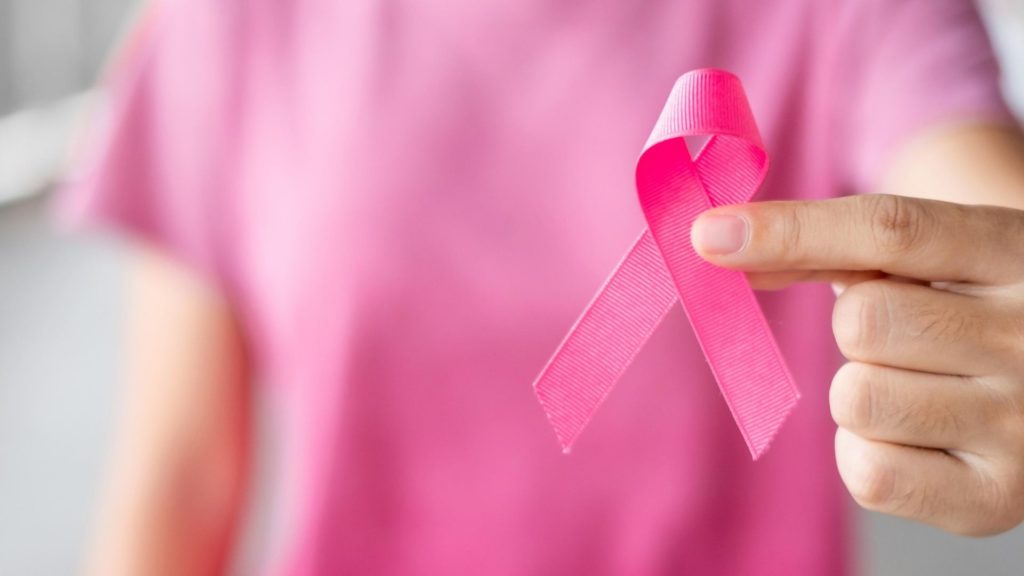You’ve likely heard (or read) some of the more troubling statistics on the occurrence of breast cancer in the United States. You may know that one-in-eight women will be diagnosed with cancer, and that around 39,620 will die from the disease this year. You may also know that 85% have no family history and that it’s not a “women-only” disease–men get it too.
Most of what you know about breast cancer was probably learned during the month of October — a time when social sharing, events and emphasis highlights the many tragic (but increasingly hopeful) realities of breast cancer. Unfortunately, the very real and constantly evolving story of breast-cancer awareness, prevention, research, treatment, survival, and even mortality are often lost throughout the rest of a calendar year. The only time we seem to hear about breast cancer is when a famous actor passes away from the disease.
Realize: It’s Someone You Know
There’s also another interesting statistic that you may not have considered: 2.8 million women have a history with breast cancer. Whether you know it or not, there’s a good chance you know someone who has had, is currently being treated for, or will develop breast cancer (~190k cases of invasive breast cancer and ~60k cases of non-invasive cancer are diagnosed every year).
What does that mean?
- We can’t blame it on “family history” exclusively.
- We ALL likely know someone who has it (or will get it).
- It’s not rare, and it is deadly.
- Early detection and treatment is key to survival.
While we can all learn a great deal from the statistics, and gain insight with the brutal realities of breast cancer, there’s also much more we can all do–beyond the October Breast Cancer Awareness Month.
Participate
While October often seems to be the only month when breast-cancer awareness events are taking place, you’ll find activities that take place throughout the year: runs/walks, bake or craft sales, birthday donation requests, volunteer opportunities, raffles, holiday fundraising (often around Mother’s Day and Valentine’s Day), and concert fundraising. You’ve probably noticed advertisements and fliers for some of these events in your local community on online—via social media.
When you participate in any of the myriad of breast-cancer events, you may be helping to raise awareness and funding for research, or you may be helping a family deal with the catastrophic financial difficulties associated with treatment. When you contribute your time and/or resources, you’ll also likely discover the many ways your friends ,and acquaintances are affected by breast cancer (even when they don’t talk about it). Your own awareness will be raised as well.
Change Your Life
If you knew that you could do something right now that would help prevent you from ever getting breast cancer, would you do it? Would you chance your life? Most of us would at least consider it. It’s not so easy to change our genetic make-up or our age. Fortunately, there are a number of very simple ways that you can counteract the risk factors:
- Refrain from smoking.
- Exercise
- Eat healthy.
They are simple concepts, and they’re likely all thing that you’ve already thought about before. Here’s a slightly different approach though. We can all know something, but ignore it and still carry on with the same practices. The challenge is to change your life. Sit down with your friends and family. Tell them about your concerns. Ask for their help and support.
Communication & Detection
Most of the awareness initiatives that you can probably think of really come down to basic communication. It starts at the personal level: you, someone you know, or someone who has touched your life has been affected by cancer. It’s a life-altering event, and it makes us all want to make a difference. Don’t quiet that first instinct to shout it out. Tell others about it, and work with others in your community to get the word out.
By opening up those lines of communication, you’re making it “okay” for others to talk about it too. You’re also giving yourself the opportunity to talk about early detection, a healthy lifestyle, and offering words of encouragement to those who have undergone treatment (or lost a loved one to breast cancer). Breast cancer is scary, but you’re not alone. You’ll be amazed by the supportive community you’ll find–as we all work toward better detection and treatment for breast cancer.

